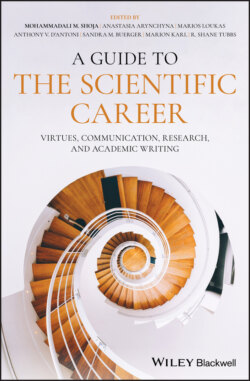Читать книгу A Guide to the Scientific Career - Группа авторов - Страница 110
10.2.5 Do Not Take Reviewer Comments Personally
ОглавлениеI have all too often seen authors who, after reading suggestions/comments from reviewers about their paper, take the reviews to heart, i.e. personally. Some will develop a “conspiracy theory” response, which is very unhealthy and will potentially taint future submissions. Such a response can lead to nothing good. Reviewers are human and are often your peers. Sure, some reviewers can be quite forward and abrasive in their reviews, and some will be down right prickly. However, it is the job of the editor to take all reviews into consideration and mesh all reviewer comments into a single overall “review.” If there are outliers in the process, the editor must appreciate these and use them sparingly in their final decision. With this said, the author should take nothing the reviewers say personally, even if it feels very personal. Most of the time, this is not the case and especially, when the peer review process is blinded. On rare occasions, and especially in smaller journals with a niche‐type readership, the reviewer may “figure out” who the author is (if it is a blinded review), and in such cases, personal biases may come into play. However, this is usually not the case, and pointed or overly critical comments may just be the way a particular reviewer will critique your paper.
In the end, a negative response from the author may result in a reviewer taking it personally and being overly critical with their recommendation. Moreover, as an editor, author responses that come across as arrogant or hostile are interpreted as being unprofessional, even if they are founded on truth.
